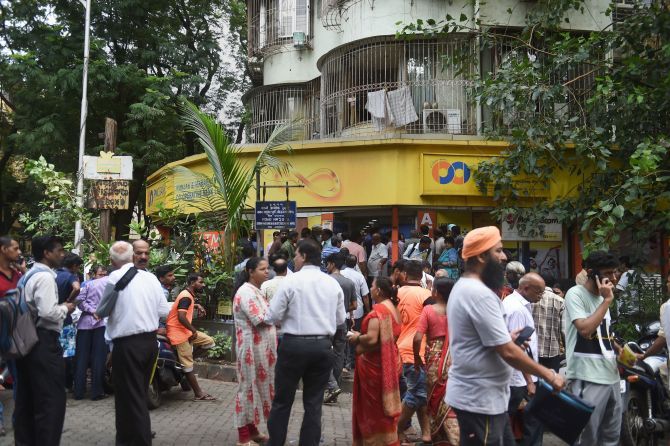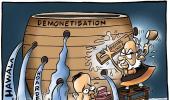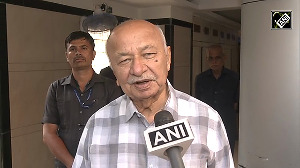While Waryam Singh was a non-executive director at HDIL, he is listed as one of the promoters of the company and had relations, including shareholding, with several other entities controlled by the Wadhawans, the HDIL founders.

S Waryam Singh, chairman of Punjab & Maharashtra Co-operative Bank (PMC Bank), held 1.91 per cent in real estate company Housing Development & Infrastructure (HDIL) till September 2017.
Singh, 67, who joined the HDIL board as director in 2005, quit to return to the bank as chairman in 2015, a position he had held between 1999 and 2005.
While Singh was a non-executive director at HDIL, he is listed as one of the promoters of the company and had relations, including shareholding, with several other entities controlled by the Wadhawans, the HDIL founders.
He remained a director on the PMC Bank board during his tenure at HDIL.
The Reserve Bank of India (RBI) will investigate this link between the company and PMC Bank, which the regulator has placed under curbs.
It has superseded its board and appointed an administrator.
Sources say the regulator will complete its investigation in three weeks.
PMC Bank’s loan to HDIL has come under the regulator’s lens.
While the bank’s auditor is said to have classified the loan to HDIL as standard, the RBI had flagged it as a stressed account, making it necessary for the bank to treat it as a non-performing asset and make provisions.
Bank of India took HDIL to the National Company Law Tribunal (NCLT), Mumbai, which admitted the corporate debtor for insolvency proceedings on August 20.
The realty player then challenged the NCLT order in the National Company Law Appellate Tribunal, which is hearing the petition.
On August 31 this year, PMC Bank gave an additional loan of Rs 100 crore to HDIL so that the company could pay off its debt to Bank of India under a one-time settlement scheme.
According to reports, HDIL may have borrowed as much as Rs 2,500 crore from PMC Bank.
Singh, a commerce graduate from Mumbai University, acquired 650,000 shares in HDIL in 2005 for Rs 4.7 crore as co-promoter.
After two bonus issues, his shareholding went up to 11.7 million shares in 2006.
He soon sold 5.48 million shares and took home Rs 5.48 crore, more than he invested within a year, and continued to own 6.22 million shares at the time of the company’s initial public offering (IPO) in July 2007.
The IPO price of Rs 500 valued Singh’s stake at Rs 311 crore, which crossed Rs 1,000 crore at the peak of the market in January 2008. Singh’s stake in HDIL after the IPO was 2.9 per cent, which subsequently reduced to 1.91 per cent.
His family member, Kuljeet Kaur, also held 2.2 million shares or around 1 per cent stake in HDIL after the IPO.
HDIL ceased to classify Singh as a promoter in the March 2016 disclosures.
What Singh did with his HDIL shares subsequently is not known.
The share price of HDIL has gone downhill, and Singh’s stake now would be valued at just Rs 2.6 crore.
After joining HDIL in 2005, Singh was instrumental in buying land and was helping HDIL re-develop old societies.
Singh was then rewarded by Wadhawan through the share purchase and his status as a co-promoter in HDIL and other Wadhawan entities that were involved in redevelopment projects.
HDIL, which was once among top developers and darling of global investors, faced liquidity challenges due to mounting debt, delay in getting cash from customers, fewer launches, and delays in its Mumbai airport slum rehabilitation project.
In July last year, HDIL repaid the outstanding loans of Andhra Bank under a one-time settlement scheme.
This was after Andhra Bank moved the NCLT under the insolvency code against the company.
HDIL’s subsidiary Guruashish Construction also filed for bankruptcy and a resolution plan was approved by the committee of creditors.
Photograph: Shashank Parade/PTI Photo












 © 2025
© 2025